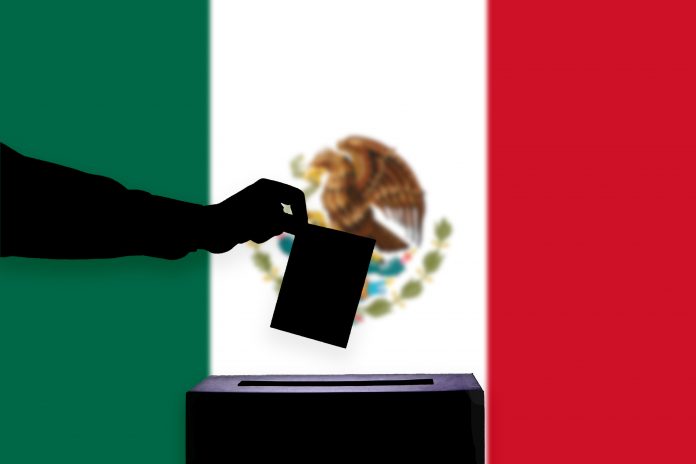With AMLO set to step down, many are looking to Mexico’s future and asking who will be leading it. With polls suggesting a MORENA victory is inevitable, who are the candidates, and what do they stand for?
On the 6th of September 2024, President Andrés Manuel López Obrador, known by his initials as AMLO, will reveal his successor.
By this time, Mexico will look markedly different after six years of his populist leadership. And there is no better example of what is at stake than the choice between continued populism and a new path for Mexico’s public health policy.
Limited access to adequate healthcare: What will be done to protect Mexico’s future?
Since 2015, Mexico has seen a steady fall in both access to healthcare and its quality, with 37 million people now falling outside of Mexico’s social security system.
This trend was only accelerated by the poorly timed and implemented dismantling of Mexico’s existing universal public health policy in 2020 – a move driven by increasing polarisation after over five years of financial neglect and delayed reforms.
The two front-runners are Claudia Sheinbaum, former Mayor of Mexico City, and Marcelo Ebrard. Mexico’s former Foreign Minister. Whoever takes up the mantle has an opportunity to direct the course of Mexico’s future – between sustaining populist policies that are failing Mexico’s people and charting a new forward-looking course for Mexico’s society.
Prioritising Mexico’s public health
Both candidates have a strong track record on public health and are bringing this issue to the forefront of their campaigns.
Ebrard has committed himself to improving Mexico’s health system by implementing universal healthcare and pioneering domestic health technology and pharmaceutical development.
And he has repeatedly lived up to his reputation for embracing bold, innovative solutions through the effective distribution of the HPV vaccine and ensuring Mexico received vaccines and hospital supplies during the outbreak of Covid-19.
Meanwhile, Sheinbaum recently announced an investment of 8 billion pesos into medical equipment for over 250 healthcare centres in Mexico City, focused on acquiring new equipment, medicines and infrastructure upgrades.
She was also nominated for the World Mayor Prize in 2021, an award previously won by Ebrard, for her implementation of public policies to protect and ensure the safety of the public during the Covid-19 pandemic.
However, there are concerns that conceding to populist pressure has already impacted Sheinbaum’s decision-making.
Despite being a physicist and engineer by training, she was widely criticised for pushing for the controversial distribution of Ivermectim as a treatment during the Covid-19 outbreak. The unapproved drug, which had no evidence of therapeutic efficacy, was supplied to more than 50,000 residents in Mexico City without sufficient monitoring – a move described as an ethically questionable “quasi-experimental study” in public health.
Nevertheless, Sheinbaum is a competitive figure. Mayors of Mexico City enjoy national prominence as they govern 7% of the population and oversee a region which generates 15% of Mexico’s GDP. Sheinbaum’s ascension would also make her Mexico’s first female leader.
Mayors of Mexico City enjoy national prominence as they govern 7% of the population
Beyond the immediacies of public health policy, Mexico must also look to the future of the planet and our environment. The latest IPCC report makes it clear that the climate crisis is a public health crisis, already negatively impacting physical and mental health around the globe.
And yet, Mexico is still dependent on oil and natural gas for its energy, as the 15th largest contributor to global carbon emissions. While successes are being made in curtailing the use of oil and coal, clean and renewable sources of energy are painfully lacking.
Can we trust environmentalist promises?
Since the start of his campaign, Ebrard has run on his green credentials, having committed Mexico, as Foreign Minister, to reducing greenhouse gas emissions by 22% by the end of the decade.
Sheinbaum, meanwhile, launched her campaign with a similar tune, emphasising her background as a scientist and an environmentalist. “I believe in science”, she said, pledging that “from now to the future, most of the energy has to be… renewable”.
However, some worry that Sheinbaum may become López Obrador’s proxy on both energy and the climate. So far, she has stuck close to the current President’s ideology, who favours propping up Mexico’s national oil and power companies over cleaner and cheaper power.
Mexico’s future: Social policy, health and tech
Yet, on social policy, Sheinbaum has fared far better. On her watch, murders in Mexico City almost halved between 2018 and 2022. Her administration was also widely praised for building centres across the capital to help disadvantaged communities study and access services. And she is credited for helping to tackle police corruption by increasing salaries.
However, Ebrard has clearly shown his commitment to health, science and technology – successfully establishing the Mexico City Institute of Science and Technology and the Latin American Space Agency. This reflects his long-term aspiration for Mexico to champion industrial, technological and medical advances, to promote Mexican and Latin American development.
Two distinct visions for Mexico’s future
As Mexicans head to the polls, the two candidates offer distinctive visions of the future. Many fear Sheinbaum’s reluctance to move away from AMLO’s worldview could stifle the prosperity of new generations, while Ebrard’s reimagining of domestic, economic and foreign policy could enable Mexico to meet 21st-century challenges.
Fundamentally, while Sheinbaum seeks only to finish the work started by AMLO, Ebrard is focused on building upon these foundations to innovate and exceed. Meanwhile, his established record of delivering on his key policy objectives stands apart from Sheinbaum’s untested political agenda.
Mexico has a decision to make between the status quo represented by Sheinbaum and Ebrard’s more ambitious vision.
This piece was written and provided by Javier Jileta, an academic, political strategist and UN-Habitat Advisor, who led the Covid-19 Taskforce at Mexico’s Ministry of Foreign Affairs.











